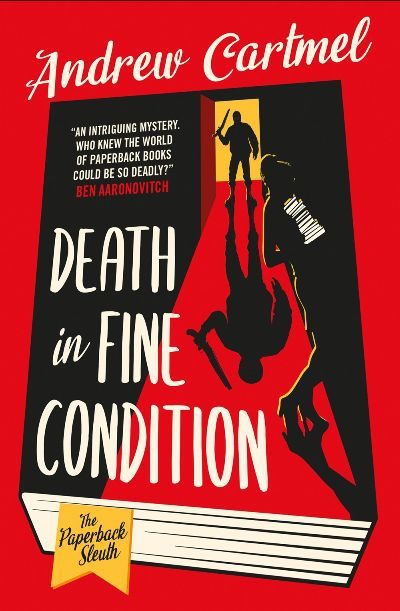Parisians Ludovic and Louise, each thirty-something, are enormous outdoor enthusiasts. Louise in particular is an avid mountain climber, and her passion for nature is part of what draws Ludovic to her. Ludovic is more the risk-taker and he convinces Louise to take a sabbatical, before they marry and have children, and sail around the world. After months of planning, they head off in their sailboat to the Cape of Good Hope. In the Antarctic Ocean, they make a stop at a deserted island. In fact, visitors aren’t allowed there at all, which makes their clandestine visit all the more exciting. But then, by immense misfortune, they become stranded on the island, a place never officially on their itinerary and that no one knows they planned to visit. Suddenly, everything changes, and they are forced to rely on each other in completely new ways while maintaining hope they’ll be rescued. Autissier is the first woman to have sailed around the world solo in competition, and her experience informs the narrative brilliantly. The suspense is rooted in her knowledge of nature, from the fierce storms that roll over the island to the lives of the penguins and seals that provide the couple with sustenance. Prepare to be thinking about this book for a long time. It’s that suspenseful, that emotionally engaging, that beautifully written and translated.
Review
Set in the same quirky, whatever-can-go-wrong-will world as his Vinyl Detective books, Cartmel’s new series dives deep into the world of vintage-crime-fiction-paperback collectors through the, ahem, creative endeavors of Londoner Cordelia Stanmer to find the best of the best. She’s starting to make her mark in the cutthroat field and knows what she’s looking for as she mines “charity shops, antique shops, jumble sales, book sales, estate sales, house clearances, auctions…” The list goes on, as does the effort to find prime goodies without her rivals in the trade getting there first. Then she finds a shortcut: a local house has a collection—dare she hope it’s complete?—of the Sleuth Hound paperbacks, “the finest horde of these rarities she’d ever encountered.” The hunt is on, with Cordelia tossing aside pesky details such as current ownership while also juggling local gangsters, her slimy brother, a crush on a glamorous but unattainable woman, curious demand for a bad self-published title that’s not even vintage, her weird landlod…again, the list goes on, but Cordelia is ready for it all. Her antics, which will remind readers of Elle Cosimano’s madcap sleuth, Finlay Donovan, create a fun and fast-moving romp; the cherry on top is the wealth of real detail on crime-fiction collectables
I’ll be 51 this Sunday and I read two books a week. It adds up, and this is the best I’ve ever read. As it’s very far from an ordinary read , I can’t write a review as I normally would. The plot and characters are fantastic, compelling, memorable, surprising…but the book is more than anything a magic box. Trussoni also has an unsettling ability to mention everything of interest and everything that has come up lately. I thought about making a website that would emulate the ability of a pile of transparency sheets to create a composite image, and that process is mentioned. I learned about the idea of the singularity this week–the possible future time when technological growth becomes uncontrollable–and it’s there. A central theme is a kind of mythical creature I had mentioned to me recently. And the characters, and of course the author, see into the reader in other ways, with the bizarre turns in the tale perfectly allowing every nuance of the strange folks within to emerge, but also startling the consumer of this sorcery on every page. What’s the book about? Everything, but there’s a framework. A puzzle maker, who, through a brain injury, gains the remarkable ability to see “that particular kind of order that [distinguishes] a puzzle from everything else on the planet,” meets a prisoner who hands him a drawing, a puzzle he can’t even begin to unlock. It leads him to letters and a diary that describe a dangerous quest to “lift the veil between the human and the Divine and [stare] directly into the eyes of God.” There’s homework before you read this so that you can be in the right frame of mind to take in its wonder. Read Brian Selznick’s The Invention of Hugo Cabret, Shaun Tan’s The Arrival, Stephen King’s Pet Sematary, Aimee Pokwatka’s Self Portrait with Nothing, and Ray Kurzweil’s The Singularity is Near. And then clear a weekend.
It’s clear that Isabel Cañas wants all the genres—speculative, historical, horror, romance, mystery—and why not? She does such a magical job of blending them together, as this follow-up to the Gothic The Hacienda makes clear. Set during the Mexican-American War, known in Mexico as intervención estadounidense en México (United States intervention in Mexico), at its core this is a Romance. Nena, daughter of a Texas rancher, and Néstor, son of vaqueros, are young teens who’ve grown up together. During a late-night excursion on the ranch—in search of lost treasure—Nena is attacked by a beast that drains her of her blood. Feeling no pulse and assuming she’s dead, Néstor flees. But Nena survives, and years later, amid the war, they meet again. He’s a member of the calvary, she a curandera, or healer. Their reunion shocks them both, with Nena unleashing her anger at Néstor for abandoning her. But soon there are bigger issues at hand, including attacks from the Yanquis and bloodthirsty creatures lurking in the dark. Compelling, steamy, and with a wonderful perspective on the War, this unique tale is not to be missed.
Never has a book been more accurately named. Downing introduces a couple, Wes and Ivy, who are playing a dangerous love/hate game: they can’t stay away from each other but are mutually destructive, willfully so. When Wes receives a visit at work from a detective and finds out she’s from the sex-crimes unit, he knows there’s only one person who could have false-reported him: Ivy. Just for fun, she’s come back into his life after one of their multiple breakups. Also for kicks is her reporting of Wes as a stalker, and she’s languidly irritated when tenacious Detective Karen Colglazier wants to pursue an investigation. Ivy is done with the stalking ruse and needs the police to let it go, but for once she’s not calling the shots. Wes is losing control as well, not only because Ivy has come back into his life against all his friends’ wishes, but because, unknown to him, he has a coworker who may be an actual stalker. Bianca is a super-efficient assistant who arrives at work before everyone else and leaves after them, using her skeleton key and type-A façade to keep tabs on their personal and professional lives. The purpose? Keep reading for one of several delicious twists. This has “fantastic suspense movie” written all over it. While you’re waiting, try Downing’s For Your Own Good (2021).
Brilliant writing. Clever plotting. And a work of speculative fiction, set in a near-future world, that is totally fascinating. Lou is the fifth victim of a serial killer, leaving behind a lovely toddler and bereft husband. Until she—along with the other four victims—is brought back to life through a government program, the “replication committee,” that clones victims. Celebrities and women advocates, who took to the streets with a red gash painted across their necks—mimicking how the victims were murdered—drew attention to their plight. But understandably, adjustment to her old/new life isn’t easy, although a support group with the other women helps. Then Lou learns some things about her murder that raise some serious questions, making her wonder whom, if anyone, she can trust. Much of the beauty of this book lies in the details; Lou works as a touch therapist in a franchise in a strip mall, dispensing hugs to the emotionally needy. These sorts of facts build on each other slowly, creating a fascinating world, when all of a sudden the book takes several sharp turns that will leave the reader gasping. Addictive, fast, and smart.
Overtown, as California’s Catalina Island residents call the mainland, Disneyland has been closed. On Catalina, the ferries have stopped and even the St. Patrick’s Day karaoke is off. COVID is on the way, if it isn’t there already. But Collette “Coco” Weber has bigger worries. She’s back on the island where her parents and brother were murdered years ago, a crime against the only Black family on Catalina. Coco herself escaped as she had sneaked out against her parents wishes. She’s hardly in line with others’ wishes now, either. Aunt Gwen—famous for stealing trinkets from rich tourists—has been living in the house Coco inherited when her parents died, and isn’t thrilled to share it. And Coco’s determination to continue owning the house clashes with someone’s plan: there’s a housing shortage on Catalina, and she’s violently pressured to sell. At the same time, island widows are being found dead, alone in remote spots that they wouldn’t likely have visited without coercion. As Catalina gets ever more dangerous, a peril nicely juxtaposed against Coco’s job as an island newspaper obituary writer, readers will fall deeper into the compelling mysteries of who killed the protagonist’s family years before and who’s behind today’s mayhem. Hall’s writing of a PTSD-stricken protagonist rings true, with her “warts and all” presentation offering veracity, resilience, and exasperation in equal measure. Those new to the author will want to go back to her previous, also fast-moving puzzles such as last year’s We Lie Here.
Southern Gothic meets crime fiction in this beautiful, haunting tale set in the 1970s. Parson, Texas is a place to leave, not stay. But twenty-nine-year-old Lou keeps finding reasons to hang on, despite that Hurricane Celia destroyed much of the town; the Vietnam War is still consuming many of Parson’s youth, including Lou’s brother; and any work is scarce. But Lou keeps thinking about Miss Kate, her surrogate mother of sorts, whose murder Lou can’t shrug off, even if the rest of the town can. The situation grows more complicated when Joanna, Miss Kate’s daughter and Lou’s first, great love, arrives on the scene. Joanna made her escape years ago—off to a fancy college, then grad school—only to be tugged back to Parson on account of Miss Kate’s house, a huge and creepy mansion that’s tumbling down. Joanna hires Lou to help her renovate the structure, which slowly leads to revelations that help Lou in discovering Miss Kate’s murderer. Insights into Parson’s queer community, and the decisions they make to survive, are fascinating. If Carson McCullers were to write a mystery, this would be it.
Depression-era San Francisco’s Claremont hotel is a wonderful playground for sisters Isabella and Iris Bainbridge Stafford, six and eight years old, respectively, who roam through it while their wealthy mother plays tennis. The luxurious hotel has a seven-story-long spiral slide that guests can use as a fire escape, one that Iris might think she’s entering to play when she fatally plunges down a laundry chute. Years later, tragedy visits the hotel again—many say it’s been cursed all along—when Presidential candidate Walter Wilkinson is found murdered in his room (murdered twice, in fact—the book explains all). Police officer Alejo Gutiérrez, passing as Al Sullivan, is the slightly jaded, but still caring, investigator who must sift through the jumble of rumors, racism against Asian hotel workers and city residents, and secretive behavior by rich characters who think the law doesn’t apply to them in his efforts to discover who killed the politician. This saga—the story has as many twisting corridors as the hotel–allows Chua to dig deep into the privileges and invisible barriers at work in any haves-and-have-nots meeting, with memorable results. Pair this with the information on the treatment of San Francisco’s Chinese citizens in David Quammen’s excellent Spillover for a sobering and enlightening view of that community’s history.
It’s the rare writer who can create an intense, well-paced thriller while taking on one of the greatest social issues of our time. And Kia Abdullah is one of those few writers. Salma Khatun, her husband Bil, and their teenage son, Zain, have just arrived at a new development in the London suburb of Blenheim. They’ve left behind the far more diverse and comfortable community of Seven Kings for fear that Zain may be getting in with the wrong crowd. Will it be a fresh start or a crash landing? Here’s the first clue: the next-door neighbor rips Zain’s Black Lives Matter poster out of the front garden, and when Salma puts it in the window, they paint over the window! Things escalate from there, but in a manner that is free of cliché and grows from the characters, who represent a range of opinions and emotions. In a nice aside, Zain and the boy next door, both budding programmers, manage to strike up a friendship that leads to the development of a software for use by those with hearing impairments. But the story doesn’t end there, and where it does lead us is shocking, tragic, and damning. One of the best books I’ve read this year; I can’t wait to discuss this with a book group










